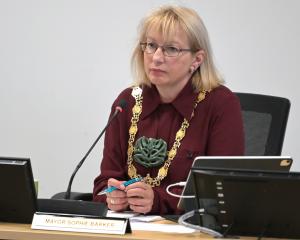What's in a name?
A lot — particularly in the public sector.
"Civil-service speak" litters official documents.
Terms of obfuscation are rolled out in increasingly meaningless, uninformative and upbeat press releases.
They are used by everyone from chief executives and managers to anonymous spokespeople to the now plethora of (non) communications and public relations staff — those supposedly there to bridge the communication divide but who in reality act as gatekeepers of an ever-increasing number of fortresses.
Thanks to this all-pervasive public sector strategy to fudge the facts, manipulate the figures, control the flow of information, sanitise the truth, package into palatable pieces information the public is freely entitled to, it is now necessary to wade through neverending gobblydegook — with no guarantee of a clear answer or message at the finish.
"At the end of the day", the focus is always on "learnings going forwards".
"Stakeholder engagements" are of course essential — but must be on a "level playing field".
People need not fear redundancies when there is a comforting "management of change process" in place.
Nor need they fear service cuts and caps when there is the "establishment of a treatment ceiling" that will brilliantly "manage expectations".
And Joe Public need not lose sleep over the financial details (even if it is their money being spent) — certainly not when there are the "commercial sensitivities" of the prickly big boys to be prioritised.
Once the dizziness has worn off, most people can see the spin for what it is, which makes its continued use even more frustrating.
It wastes everyone’s time — and often money — although it undoubtedly creates many high-paying jobs.
Most people expect buzzwords and bravado from the corporate sector to sell even the most basic or boring of products or services, but surely our elected representatives and public service officials want to be taken seriously?
Surely they are there for their constituents first and foremost?
Surely the distribution of vital public information in a democratic society demands the use of plain English?
As the relentless PR machine drives on, it is refreshing, therefore, to finally find an instance where someone is prepared to call a spade a spade.
Unsurprisingly, so conditioned are we to euphemisms, others disagree.
Since the Government’s announcement of its creation, the Ministry for Vulnerable Children has copped criticism — for its name.
"Vulnerable" is too "stigmatising" a label, say the Labour Party and the new Children’s Commissioner, Judge Andrew Becroft.
It is too "limiting", it isn’t "aspirational" like its Maori name, Oranga Tamariki (which means the health and wellbeing of children).
In fact, its new English name should "wither on the vine", according to the judge.
What a sad and bitter way to welcome in a new era and a whole new agency that will replace the widely criticised Child, Youth & Family.
How refreshing to have a simple name that actually reflects its stated aim: a ministry specifically for our most vulnerable children, those in state care, those who have been neglected, abused, traumatised and marginalised, those who have been failed by their parents and caregivers, and by the State.
The name puts those children front and centre — just as the Government has promised in its new approach.
The name is spot on. But, of course, it is just a name.
Vulnerable Children’s Minister Anne Tolley must now deliver the goods: an agency that practises what it preaches.
If it does that well, and its intervention strategies and care policies reduce the numbers of vulnerable children in Godzone, maybe a name change will be in order.
That’s an aspirational thought.












